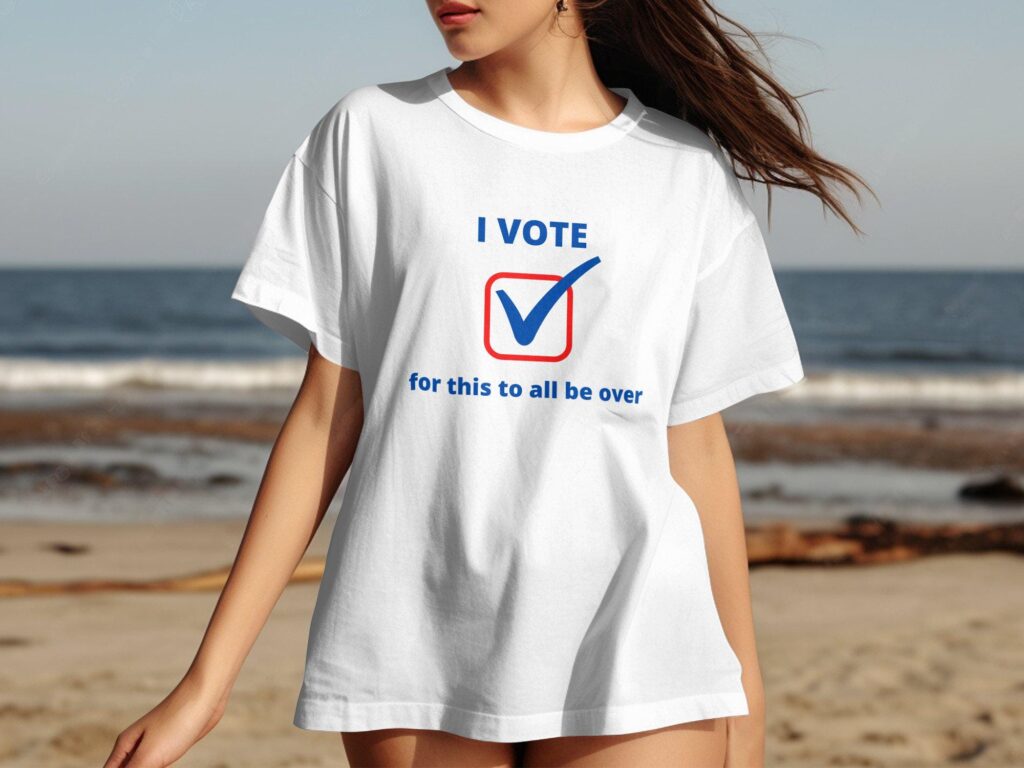The Exhaustion of Election Season: Voter Fatigue Amidst the 2024 Presidential Campaign
As the 2024 U.S. presidential election approaches, many voters across the nation are feeling a sense of fatigue that often accompanies the final stretch of a long and intense campaign season. With the Democratic candidate, Kamala Harris, stepping in for incumbent President Joe Biden, seeking re-election for her party, and the Republican nominee, former President Donald Trump, leading the charge for his party, the airwaves, social media platforms, and even our daily routines have become inundated with political messaging. While this barrage of information is intended to inform and persuade voters, it has also led to a significant sense of exhaustion among the electorate.
Voter fatigue is not a new phenomenon, but it seems to have reached new heights in this election cycle. The sheer volume of political advertisements, debates, and campaign events has created an environment where voters are constantly bombarded with messaging. For many, this relentless exposure can be overwhelming, leading to disengagement rather than the intended effect of increased political participation. As we near the election date, the pressure to make an informed decision is compounded by the sense that every media outlet, billboard, and social media post is pushing a political agenda.
One of the key contributors to voter fatigue is the nature of modern political advertising. In today’s digital age, campaigns have access to sophisticated tools that allow them to target voters with pinpoint accuracy. This means that voters are not only exposed to ads on television and radio but also on their smartphones, computers, and even in their daily online browsing. The personalized nature of these ads can make it feel as though there is no escape from the campaign, no matter where you turn. This constant exposure can lead to a sense of overwhelm, causing some voters to tune out the political discourse altogether.
Moreover, the tone of political advertising has increasingly leaned towards the negative, particularly in the battle between Harris and Trump. Attack ads, which are designed to highlight the flaws and shortcomings of the opposing candidate, have become a staple of modern campaigns. While these ads can be effective in swaying undecided voters, they also contribute to a sense of cynicism and fatigue among the electorate. When voters are constantly bombarded with negative messaging, it can lead to a sense of disillusionment with the entire political process.
Another factor contributing to voter fatigue is the extended nature of the campaign season. Presidential campaigns in the U.S. are notorious for their length, often beginning nearly two years before the actual election. This prolonged exposure to campaign messaging can make it feel as though the election is a never-ending process. For many voters, the constant focus on the election can be draining, leading to a desire for it to simply be over.
The role of social media in amplifying voter fatigue cannot be overlooked. Platforms like Facebook, Twitter, and Instagram have become battlegrounds for political discourse, with both campaigns utilizing these tools to engage with voters. While social media can be a valuable tool for reaching younger voters and those who may not engage with traditional forms of media, it also contributes to the sense of being overwhelmed. The speed at which information spreads on these platforms, combined with the tendency for political discussions to become heated and divisive, can make social media a stressful environment for those trying to navigate the election.
Despite the fatigue that many voters are feeling, it is important to remember that participation in the electoral process is crucial. The outcome of the 2024 election will have significant implications for the future of the country, and it is essential that voters make their voices heard. While the constant barrage of advertising and political messaging can be exhausting, it is also a reminder of the importance of the decision that lies ahead.
In conclusion, voter fatigue is a real and pressing issue as we approach the 2024 presidential election. The overwhelming nature of modern political campaigns, combined with the negative tone of much of the advertising, has led to a sense of exhaustion among many voters. However, it is important to push through this fatigue and remain engaged in the electoral process. As the campaigns of Kamala Harris and Donald Trump continue to vie for the attention of the American electorate, voters must navigate the noise and make an informed decision that reflects their values and vision for the future of the country.
**However, if you’d like to express your state of being fed-up with all the political ads, might we suggest this timely design from our friends at SnarkSharks.com.

Find it at our shop right here

